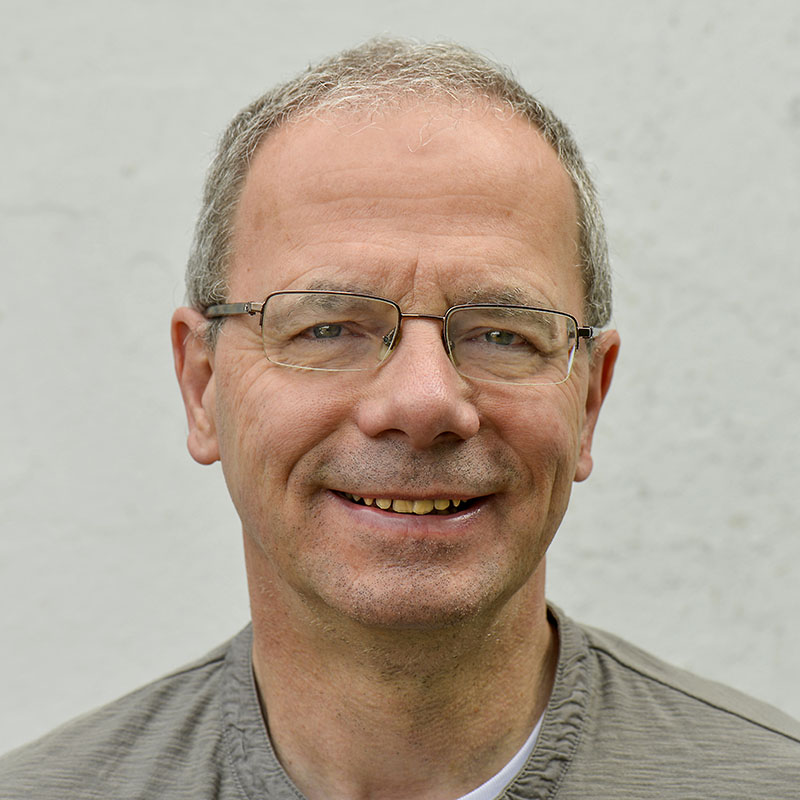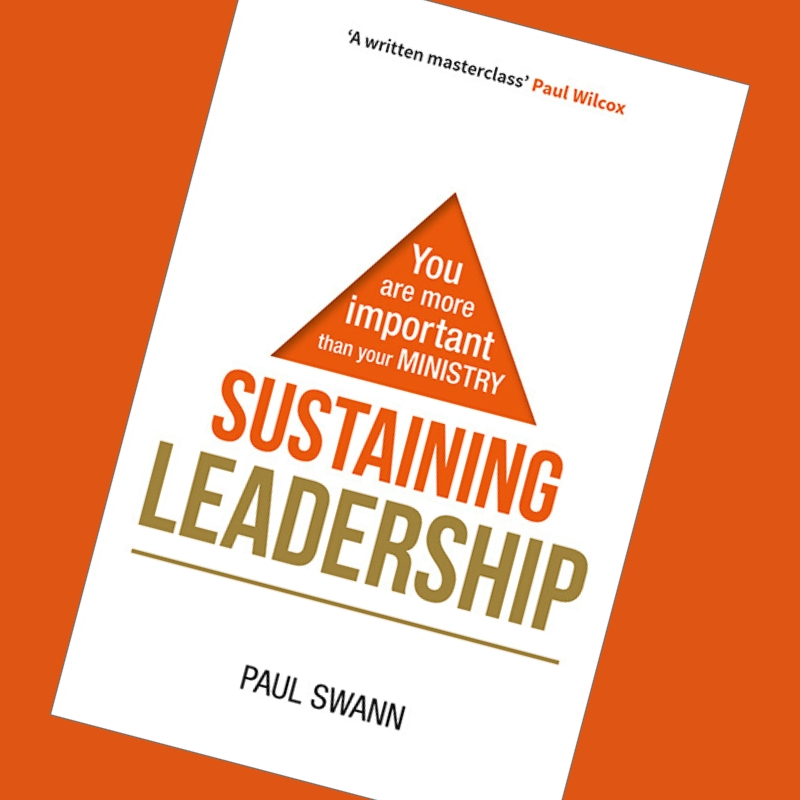Paul Swann shares his hard-won insights and wisdom on how to care for ourselves in seriously challenging times…
The following is an edited extract of an article by BRF author Paul Swann on the vital importance of self-care during lockdown. While written with hard-pressed church leaders in mind, it has lessons for everyone. The full article includes numerous helpful references and practical suggestions for action you can take to look after your well-being.
Some of us have now been in lockdown for weeks. A relapse of my own battle with ME/chronic fatigue syndrome (CFS) means that I have now been in lockdown for several months. I know that it is not easy and sometimes my frustrations win out.
But I have also needed to reflect on how to create an environment of thriving, not merely surviving, through the extraordinary circumstances in which we are now living. So, drawing from my current experience and looking back to my book Sustaining Leadership: You are more important than your ministry, here are some things I have learned.
T – Take time to check out how you are
Taking time to check out how you are before you pile into the day’s task need not be self-indulgent or time-consuming, but it is important.
‘How to create an environment of thriving, not merely surviving?’
Why? Because how we respond to each person we encounter and how we cope with each task that comes before us will flow from how we are, whether or not we know it. Richard Rohr’s neat phrase for this is ‘Whatever is not transformed will be transferred.’
That person with whom you are impatient may indeed be irritating, but your reaction to them will be impacted by how you are. That task may be complex, but whether it appears beyond you will, at least in part, be a reflection of how you are.
This applies even, and perhaps especially, if you don’t know the answer to the question, ‘How are you?’
H – Hurry is your enemy
The only words I can remember from my grandfather were ‘More haste, less speed.’ I was a child when he died and I had no idea how doing something faster could end up taking more time. But the saying is wise.
Hurry is your enemy, not only because it persuades us to skip the first point above, but also because there is very little that we do which is improved by hurry. On the other hand, there is plenty that we do which is made worse.
Dallas Willard’s mantra was that the way to deepen spiritual life was to eliminate hurry. Tasks always cry louder than this imperative to go deeper, but the things we do and say flow out of the people we are, and a hurrying people will necessarily operate more from the surface than from the heart.
R – Rest more than you would normally do
There are reasons why this season is more tiring that you think. We are experiencing the first global pandemic in a century, which is triggering an unprecedented global recession, all while experiencing a volatile global response to 400 years of failure to confront racial injustice. Self-care was already essential but never more so than now. Here are some examples of why this is so.
A minister shares that although funerals are shorter now, she needs more rest time afterwards than she did previously. There’s a whole different emotional dynamic going on.
It may have been convenient to hold all those meetings from home, but video conferencing is draining in different ways. Gianpiero Petriglieri, a management professor, tweeted:
I spoke to an old therapist friend today, and finally understood why everyone’s so exhausted after the video calls. It’s the plausible deniability of each other’s absence. Our minds tricked into the idea of being together when our bodies feel we’re not. Dissonance is exhausting.
— Gianpiero Petriglieri (@gpetriglieri) April 3, 2020
I am operating on very limited energy at the moment and have sadly had to decline even social video calls, because my brain simply cannot process multiple people speaking out of the screen. But I am not alone in this. Here’s another comment on the same Twitter thread:
But now that all of this has moved online, back to back, relentless, I notice the absence of walking from one meeting to another, stoping to get a coffee, some time at my desk, commute time. Of seeing different places and faces incidentally rather than for the next meeting.
— Leo Havemann (@leohavemann) April 4, 2020
Further fatigue derives from the corporate grief with which we have been living for some time. The loss of ways of living and working, family and friends, those we know and those we do not know who have died or are dangerously ill. The combination is a perfect storm.
I – Inspire
Try this: breathe out, and keep breathing out for as long as you are able. What happens? Eventually you reach a point where your body’s reflexes take over and you just have to breathe in again.
The idea of breath and breathing is pertinent at this time of virus because it has affected the breathing of those who have caught the virus. The death of George Floyd under the knee of police in Minneapolis has added extra significance to the phrase ‘I can’t breathe’.
My point is that you cannot consistently breathe out without also breathing in. The word ‘inspire’ means to breathe in. All ministry is akin to breathing out, as we give ourselves in time, energy, emotion and gifts to those around us. This takes from us. Even Jesus was aware of power going from him when a woman touched his cloak for healing (Luke 8:46).
‘Self-care was already essential but never more so than now.’
Even the most exhilarating of ministries carries this cost – even if that is hidden from us by the adrenaline rush. Carry on regardless, and you will grind to a halt probably sooner rather than later.
We also need to discover which areas of ministry are the ones that drain us more than others and which are the ones that, in spite of our giving out, make us feel as if we have received, even after the adrenaline subsides.
What for you is like taking a breath of fresh air? What literally inspires you?
V – Validation: a tough but critical question for us all
From where do we gain validation? That’s always a good question to ask oneself, but in times when everything is turned upside down the question is forced to the surface. If this is uncomfortable to us we may ignore its challenge, but that would be unhelpful in the long run.
If our validation comes through what we do, we are on a dangerous path. If it comes through who we are, we will find that liberating. This is about our core identity – that question we asked ourselves first thing while brushing our teeth.
‘If our validation comes through what we do, we are on a dangerous path.’
As we get stuck into the day’s tasks, however, it is so easy to slip back into measuring ourselves by performance as well as depending upon the response of others to what we do. How many likes did our online service get? Did I fluff my lines? How far down my to-do list did I get? Why am I getting less done than before? Did I say the right thing to that bereaved family?
The experience of weakness allowed me to discover an unhelpful validation in my life. This is a good discovery because once noticed we can take action to return to our core identity as loved children of God.
In this time when you experience more fatigue, when you find yourself struggling with new ways, when you have days when you do not get very far down your to-do list, do not beat yourself up. Instead allow the discomfort of that to point you back to who you really are. The identity from which you can set out each day to serve God and neighbour.
E – Evaluate: what works best to bring out the best in us?
Finally, as we take stock of how we are, eliminate hurry, prioritise rest, learn what inspires and check out our sources of validation, we can be evaluating what works best to bring out the best in us.
Life is very different at present, and not only will some of the enforced changes be around for a very long time, but there will also be those new ways, discoveries, habits that we will not want to let go of as other things return to ‘normal’.
This is an opportunity to make a fresh start where that would be helpful – to prioritise a new way of living and serving which is sustainable and life giving in the long run.

About Paul Swann
Paul Swann trained for ordination in the Anglican Church and served in two growing parishes in the Diocese of Worcester. In 2008, Paul was forced to retire early and spent four years in the wilderness of total fatigue. Since 2012, Paul has begun to offer a new ministry from this place of weakness. He has served as diocesan adviser on spirituality, offers spiritual direction and leads retreats. The insights of this book are drawn from these experiences

Sustaining Leadership
You are more important than your ministry
Many books on leadership and ministry are written from the point of view of success and strength. In Sustaining Leadership Paul Swann writes out of the raw experience of failure, getting to the heart of who we are as leaders rather than what we do. From this, he offers both hope and practical resources for sustaining effective long-term ministry, looking at self-care, balance and healthy ministry, feasting on divine love, and more. As he says, this is the best gift we can offer those we serve.
